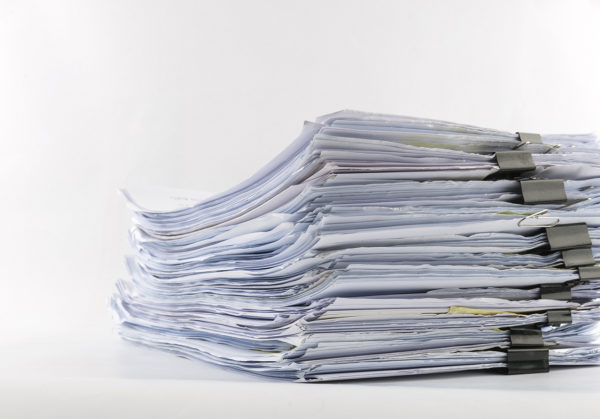If It’s Not In Writing, It Didn’t Happen
September 20th, 2018 | By: Matthew I. Paletz, Esq.
Last month’s Paletz Law blog was about the value of a landlord taking pictures to document damages caused by a tenant. Another similar property management practice tip is to make sure you keep a written record of a tenant’s actions while they’re renting from you. If an issue ultimately needs to be litigated, you can provide this documentation to your attorney in advance of court to help support your case.
The necessity of writing things down cannot be overstated. Businesses do this when rolling out new policies. HR managers will tell you this is the best tool when dealing with employment issues. For every effective practicing attorney, this is a mindset that we utilize every day. So, it stands to reason that this should become a habit for every property manager to memorialize what transpires during a landlord-tenant relationship.
Also, as previously discussed in our Paletz Law blog, the language in a lease matters. When violations of the lease or accompanying rules and regulations occur, a landlord should issue a written notice of the offense and save it to the tenant’s file. A standard form should be used and rule enforcement should be done in a consistent manner.
Some items to include in a lease violation form are:
- Date of incident
- Identify if this is the first or an additional violation
- Brief description of the violation
- Provide an opportunity to cure the violation (if applicable)
Not only will this process help if a relationship with a tenant becomes contentious and it’s time to proceed with an eviction, it also safeguards against potential fair housing claims because it can be demonstrated in writing that uniform rule enforcement has been done.
Common types of lease violations include:
- Tenant behavior that disturbs other residents and interferes with their quiet enjoyment
- Threatening or abusive conduct towards management and maintenance staff
- Unauthorized occupants or pets
- Physical damage to the property caused by a tenant
Another common issue is how to best handle email communication with a tenant. The first thing for a property manager to remember is to not take things personally. There is no value in getting into an email “war” with a tenant at four in the morning. If necessary, take a pause before responding. Just as important, contact your attorney and use him or her as a resource. We are skilled at suggesting language to help you avoid stating things that could be counter-productive to your position.
As a general rule, less is more. Keeping the scope of emails limited to the facts is desirable as you definitely want to avoid a back and forth “novelesque” exchange. Likewise, litigating tenant disputes through social media should be avoided, as the potential for miscommunication far outweighs any expediency of response.
The Bottom Line: Property managers should be open to adopting the mindset of “if it’s not in writing, it didn’t happen.” Written lease violations should be issued consistently and uniformly. Email communication should be straightforward and concise. Never take things personally and when in doubt, take a breath before responding and call Paletz Law.
Speak with a Paletz Landlord
Advocate Today
 - advice for small to mid-size businesses to help them better their day-to-day operations
- advice for small to mid-size businesses to help them better their day-to-day operations 